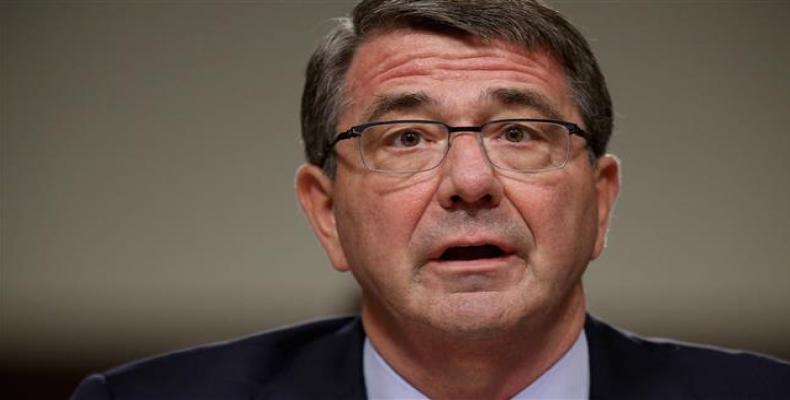Washington, July 30 (RHC)-- U.S. Secretary of Defense Ashton Carter has once again threatened Iran with war despite the conclusion of nuclear talks between the Islamic Republic and the P5+1 group of countries.
Testifying before the U.S. Senate Armed Services Committee, Carter said the agreement would not limit Washington’s ability to respond with military force against Iran if needed.
U.S. Senate Armed Service Committee chair, Republican Senator John McCain, claimed that "Iran is aggressively seeking to advance its hegemonic ambitions" -- without offering any proof. McCain added that the nuclear agreement would "unshackle” Tehran in its “long-held pursuit of conventional military power.”
Defense Secretary Carter argued that the nuclear accord places "no limitations on what the Department of Defense can and will do to pursue our defense strategy" in the Middle East region. "If Iran were to commit aggression, our robust force posture ensures we can rapidly surge an overwhelming array of forces into the region, leveraging our most advanced capability, married with sophisticated munitions that put no target out of reach," he said.
"We will continue to maintain a strong military posture to deter aggression," he said in his earlier remarks during the hearing. "We're continuing full speed ahead, standing with our friends, standing up to ISIL, and standing against Iran's malign activity," he added.
U.S. Secretary of State John Kerry, Energy Secretary Ernest Moniz and Chairman of the Joint Chiefs of Staff Martin Dempsey were also present in the meeting.
The Barack Obama administration has been trying to allay Republican American lawmakers’ concerns over the conclusion of Iran nuclear talks reached between Iran and the P5+1 group of countries -- the U.S., Britain, France, Russia, China, and Germany -- in the Austrian capital, Vienna, on July 14th.
Most Republicans oppose the nuclear agreement with Iran, but they need a two-thirds vote in both chambers of Congress to override a possible presidential veto, and to reach that threshold, Republicans need Democratic support.


